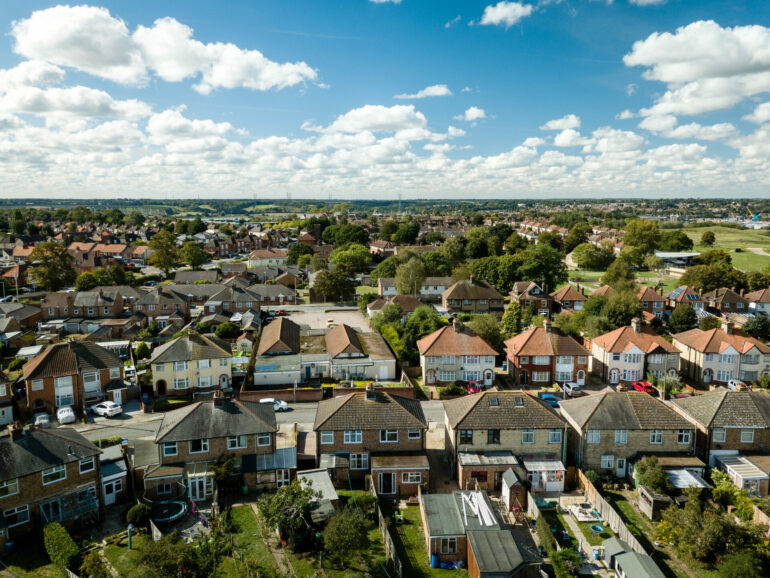A new study has discovered the regions with the most significant rises and falls in cash purchases on properties since 2013, based on the total number of purchases that were outright sales according to the HM Land Registry.
The study, conducted by SPF.co.uk, utilised data from the HM Land Registry to compare the percentage of properties sold as cash sales in every local authority between 2013 and 2023.
The focus was on the change in the portion of all sales that were cash purchases within the decade, rather than the total number of properties bought in cash.
The area with the largest increase was Inverclyde, with a 39.4% jump in the percentage of properties sold as cash.
In 2013, 36% of all homes were bought outright, but this jumped to 50.1% last year.
According to the Office for National Statistics (ONS), the average house price here was £123,000 in April, with first-time buyers paying £100,000 on average for their first properties.
Next in line, Hart in Hampshire followed suit with a 26.1% increase.
In 2023, there were 379 properties bought in cash according to the Land Registry, equalling 33.5% of all property sales.
According to the latest provisional data from the ONS, the average property here costed £467,000 – a huge 63% above the national average.
The third largest increase was seen in Solihull in the West Midlands.
Here, cash sales have taken up 35.8% of all properties last year compared to 28.6% in 2013, resulting in a 25.4% rise overall.
Fourth place was Rushcliffe, with a 22.9% rise between the two periods.
The ONS reported that first-time buyers paid £275,000 for their property here, though the average house price was £346,000.
Ranking fifth was Redcar and Cleveland, with a rise of 21.9%.
The area, just outside of Middlesbrough, had an average house price of £158,000, according to ONS data, with first-time buyers paying an average of £141,000 on a property.
At the other end of the study, Harlow in Essex was revealed as the area with the most significant decrease in the proportion of cash purchases between the two years, with a 44.9% fall.
According to ONS data, Harlow’s average house costed £309,000.
In 2013, cash purchases comprised 26.3% of all house properties, but in 2023 this fell to just 14.5%.
In second place was Barking and Dagenham, which saw a 41.4% decline.
The London borough had one of the smallest chunks of properties bought in cash at just 9.8% last year, though this figure was already lower than most in 2013 at 16.7%.
Just 99 properties were bought in cash last year, and the average price sat at £330,000.
Thurrock took third place after seeing the percentage of cash sales drop from 21% in 2013 to 12.5% in 2023, a 40.5% decrease.
As it stands, the region saw 172 houses bought outright last year, compared to 442 in 2013, and ONS data reports that the average house price was £303,000.
On the other side of London’s outskirts, Slough came in fourth with a decrease of 39.7%.
Slough saw just 92 properties bought in cash in 2023. As of the most recent estimate from the ONS, house prices were averaging at £330,000.
Another area not too far from England’s capital, Luton, took fifth place with a proportion decrease of 35.2%.
Last year, 247 properties were bought outright, representing just 16.5% of all purchases. Now, ONS data reports the average price to be £270,000.
Mark Harris, chief executive of SPF.co.uk’s Private Clients, said: “Outside London, there has been a growing trend of cash purchases post-pandemic, perhaps due to the savings some people were able to build up during Covid and choosing to use these rather than opt for more expensive borrowing.
“That said, cash sales overall have decreased, with ONS data showing 186,000 sales in England last year, down from 254,000 in 2013, which may be down to higher property prices and the elevated cost-of-living, leaving people with less disposable cash.
“With properties in London and the south-east costing significantly more than elsewhere, they tend to be unaffordable for certain cash buyers such as retirees who prefer to own outright. Economic uncertainties and market fluctuations have also made investors more cautious, driving them away from the capital.
“Additionally, the shift to remote working for many has further encouraged people to live outside major cities, with investors looking at alternative regions.”




